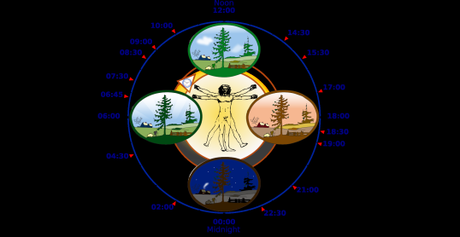Many folks might not know that I was almost a pediatrician. I spent most of my childhood planning for medical school, and the first three years of my college career taking the necessary courses to achieve that vision of my future. Ultimately, my interests led me in a decidedly different direction, but I never let go of my love of science and the human body. That’s no doubt why I find the biological and physiological side of endurance running so fascinating. We put our bodies through countless trials out on the road and trails. The pain is real, and the criticism is consistent, but we keep doing it. At a certain point, any run of 50 miles or more seems to become a decidedly mental exercise, but our body still needs to function appropriately to keep moving forward. I’ve dealt with all kinds of aches, pains, and general fatigue during races, and often the knowledge that I can and have overcome those hardships is the only thing that keeps me pushing forward.
I’ve come to realize that the most difficult part of long-distance endurance events is often the number of hours I am on my feet at any given time. I’ve always been a bit of a night owl so staying up “late” has never been an issue. Unfortunately, my body’s definition of “late” has gotten earlier and earlier as I’ve circled the sun more and more. Gone are the college days of consistent all-nighters full of productive accomplishment. I’ve accepted this reality, but seem to push it aside when it comes to running. I’ve forcefully convinced myself that I am still easily capable of staying up all night as long as I’m running, and I’ve done it numerous times, which has only served to reinforce my illogical beliefs.
Now, I might have proved consistently that I can continue running at 3:00AM, but that doesn’t mean my body likes it. The pain and fatigue are real, and the digestive issues can’t be ignored (toilet paper should be a part of any ultra-runners race kit!). Thus, I found a recent story on NPR about circadian science fascinating. As the story discussed, we’ve long known that our brains have master clocks that help us maintain our 24-hour sleep/wake cycle. Interestingly, researchers have discovered that we actually have clocks in every organ, every cell of our bodies. The story goes on to note:
We humans are time-keeping machines. And it seems we need regular sleeping and eating schedules to keep all of our clocks in sync.
Studies show that if we mess with the body’s natural sleep-wake cycle — say, by working an overnight shift, taking a transatlantic flight or staying up all night with a new baby or puppy — we pay the price.
Our blood pressure goes up, hunger hormones get thrown off and blood sugar control goes south.
We can all recover from an occasional all-nighter, an episode of jet lag or short-term disruptions.
But over time, if living against the clock becomes a way of life, this may set the stage for weight gain and metabolic diseases such as Type 2 diabetes.
The basic idea here is that our body’s clocks are set to expect certain things at certain times, and they react accordingly by releasing hormones, digestive enzymes, and a myriad of other chemicals throughout the body to effectively achieve the desired outcomes. If we take actions, such as eating, at times the body is not accustomed to this occurring, then we are fighting the signals that tell our body not to eat or drink, and we become off-balance.

This story got me to thinking about the implications for ultra-running. How many times have we heard stories about runners unable to keep food down during an overnight run, or suffering fatigue in the middle of the night, only to feel their body reawakened and re-energized with the sunrise (hint- ME!). What if these instances were the result of the clocks in our muscles demonstrating their utter confusion and disbelief over the fact that we are running in the middle of the night when we should be horizontal and flowing through REM cycles? What if our digestive issues are a direct result of our stomach, pancreas, and other vital organs telling us that we shouldn’t be consuming calories at 2:00AM. Perhaps the stomach just can’t make heads or tails of pizza and potato soup when it should be replenishing vital digestive acids and enzymes?
The endurance running implications for this research are fascinating to say the least. Ultimately,
“We’d like to be in a position where we’d be able to monitor hundreds of different rhythms in your body and see if they’re out of sync — and then try to normalize them,” Turek says.
We might be forcing these rhythms out of sync intentionally, but the possibility of helping keep them in sync while we running is phenomenal. If my body was as comfortable running at 3AM as it is at 3PM, there’s no telling what I would be capable of achieving. Perhaps we should be paying less attention to the clock on our wrist, and more attention to the clocks in our bodies!

